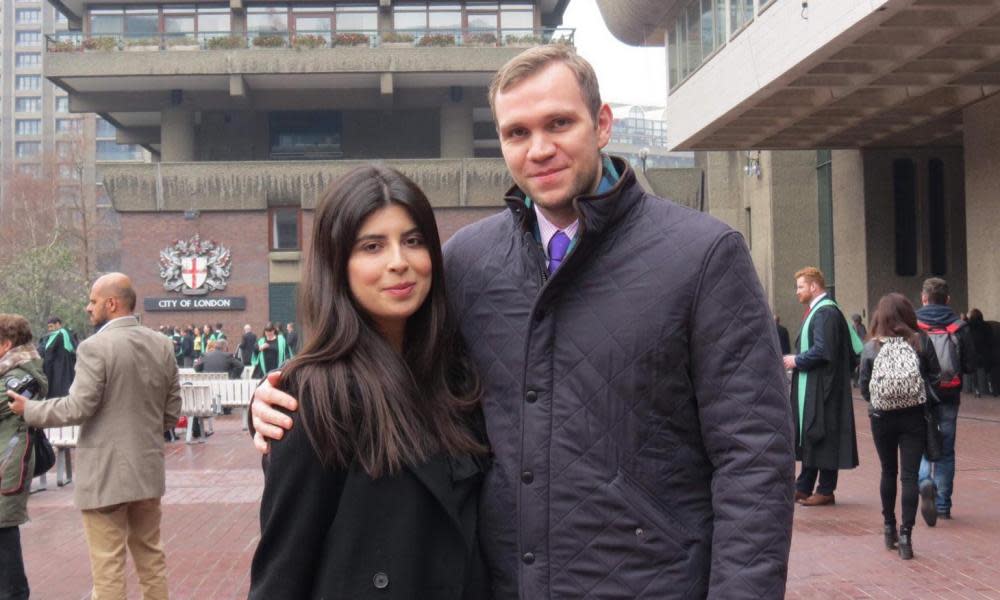‘Don’t be naive like I was’: UK academic advises Cop28 attenders to stay safe

Journalists and campaigners attending the Cop28 climate conference in Dubai should “not be naive” and take steps to protect their physical and digital security, a British academic who was tortured in the summit’s host country has warned.
Matthew Hedges, who was detained in the United Arab Emirates for seven months in 2018, advised reporters and activists to take new, clean phones, think carefully about who they deal with and how and where they protest.
“In a country like the UAE, there are multiple laws which are heavily repressive and restrict the ability for free speech, free opinion,” Hedges said, warning that he still suffers trauma after he was jailed while researching a PhD on the UAE’s security and defence apparatus. “Don’t be naive like I was,” he added.
The latest UN climate summit began on Thursday in the autocratic country, the world’s seventh largest oil producer, where media and protest are tightly restricted and human rights activists are subject to harassment. The UAE also has access to Pegasus spyware that can secretly take control of a person’s mobile phone.
Related: Cop28 president denies on eve of summit he abused his position to sign oil deals
Hedges said: “Take a clean phone, a new phone with limited access. Do not have social media on your phone, or if you do, make sure it is a business account, with two-factor authentication, or something like this, and do the same for the safety, integrity of your emails.”
A phone used by the British academic was one of a list of 400 UK numbers that appeared on a leaked list of persons of interest to the UAE for potential targeting by mobile phone spyware two years ago, although the developer of Pegasus denied at the time this was the case.
The greatest risk, Hedges continued, may be faced by sources and other people with whom journalists and campaigners communicate. “It isn’t just you, it’s anyone you are connecting with, because there are laws which restrict and criminalise working with international organisations that could be perceived to be critical of the government.”
Particularly controversial is the UAE’s position as a host, given it is a major oil producer. Leaked emails published this week showed that the UAE was planning to use the climate event to pitch fossil fuel deals to foreign governments. Cop28’s president, Sultan Al Jaber, on Wednesday denied the claims.
But Hedges cautioned those hoping to protest against the UAE’s hosting – or raise wider non-climate questions such as the war in Gaza – particularly beyond the event’s core Blue Zone, which is managed by UN authorities rather than the host country for the duration of the event.
The academic questioned whether protesters should even go to Dubai at all “because the risks to you are physically too high, and I’m saying that as a victim of this exact conversation” and he urged campaigners to take individual responsibility.
Hedges said: “Don’t be so easily swayed by the lines given to you by the state as well as your own government.”
In August the UAE issued a joint statement with the UN promising to guarantee free speech, and later that Cop28 visitors would be permitted to “assemble peacefully to have their voices heard in designated areas”. The Gulf nation said in the statement it was “one of the most tolerant and diverse nations”.
Last month the UK asked the host country to go further and explain how it would guarantee “freedom of opinion and freedom of expression and for peaceful assembly” – and voiced disappointment the UAE had not agreed to make changes to its laws to guarantee those rights.
Hedges said journalists and campaigners should ensure colleagues and close friends “know your diary” and advised attenders in those categories to have a list of phone numbers on hand so “should anything go wrong you have the ability to reach out”. A person who gets into trouble with the local authorities may not, he added, be able to rely on the UK Foreign Office. “You can see that from my experience,” he said.
In September, the Foreign Office apologised to Hedges for not recognising he had been tortured when British consular officials visited him while he was in custody. The UAE has said Hedges had been legitimately convicted of espionage and his accounts of torture were “wholly untrue and without any foundation whatsoever”.
A spokesperson for the Cop summit said there would be space available “for climate activists to make their voices heard” in line with UN guidelines and added that the UAE “protects the right to protest in line with relevant international agreements”. They added: “Freedom of speech is guaranteed under the UAE constitution and we look forward to hosting a range of open conversations at Cop28.”

 Yahoo News
Yahoo News 
